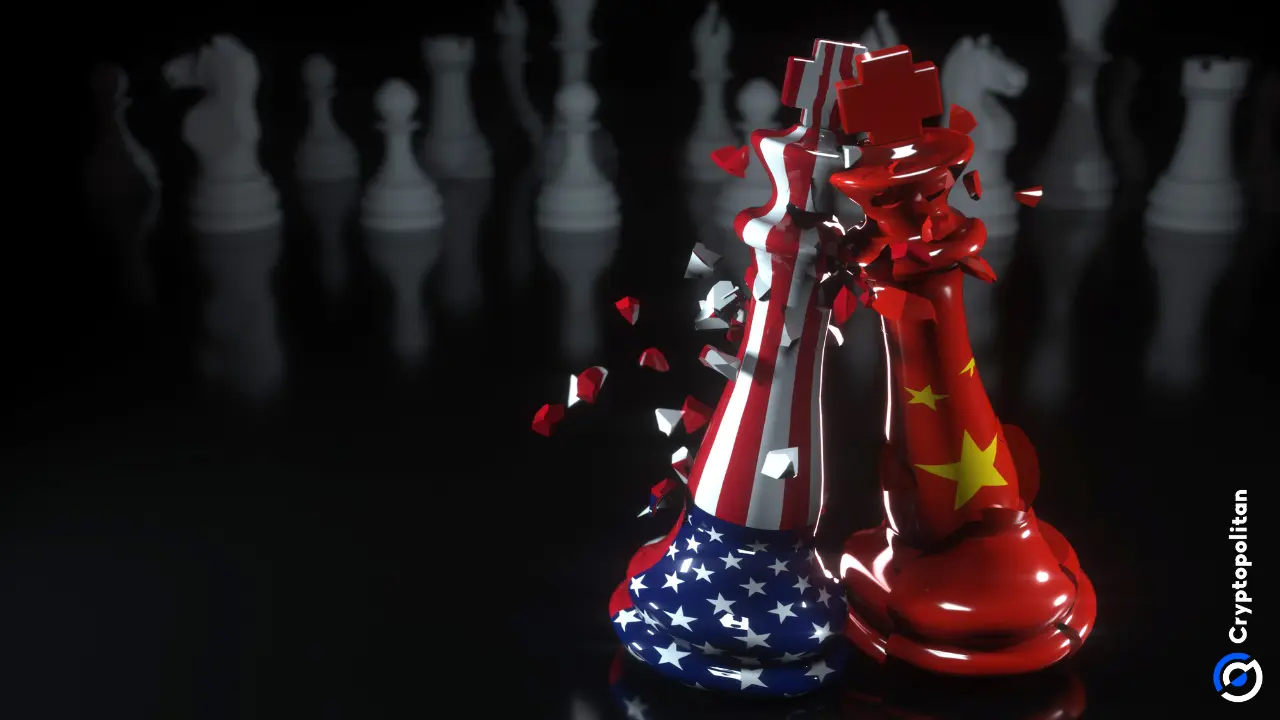
China has begun discreetly notifying companies that certain US-made products will be exempt from its steep 125% retaliatory tariffs, meant to shield manufacturers from the consequences of a trade conflict with Washington, according to sources familiar with the matter.
As revealed in an exclusive report by Reuters on Wednesday, Chinese officials have kept these exemption policies confidential. The apparent aim behind this discretion is for China to alleviate some of its economic pressures without giving the impression that they have conceded defeat in response to American tariff measures.
According to two people familiar with the matter, details about which goods will be excluded from tariffs are being shared confidentially with companies. These businesses often depend on U.S. technology and had earlier campaigned for exemptions.
Medications, semiconductor chips, and airplane engines are currently excluded
Before April 27, China had already provided public tariff exemptions for a select group of imported items such as medications, microchips, and engine parts. Nevertheless, the presence of an undisclosed "whitelist" specifying which U.S. products were eligible for these exemptions was only recently brought to light.
One source A representative from a pharmaceutical firm that imports U.S.-produced medications mentioned that the Shanghai Pudong authorities reached out to them on Monday regarding the updated list. The source indicated that their company, which has been advocating for an exemption, relies significantly on American technological resources.
“ We still require numerous technologies from the US. ,” the person said.
An alternate person mentioned that certain companies have been advised to contact the authorities and inquire whether their imported items qualify for reduced tariffs.
Per an April 25 report from the Wall Street Journal , which referenced a financial news update from a Chinese source Caijing China reduced duties on at least eight types of U.S.-produced semiconductors.
The article was subsequently taken down, however, importers verified the modifications with The Wall Street Journal. A firm based in Shenzhen posted the updated exemptions on WeChat, China’s social media platform, along with screenshots from a customs database indicating zero percent tariffs for certain items. US chip imports.
Is there an ongoing negotiation between the US and China?
The secret compromises made by Beijing and Washington suggest that both cities may have initiated talks or might do so shortly. In mid-April, China declared it was ready to persist in fighting unless the U.S. reduces its tariffs of 145%.
Merely weeks later, US President Donald Trump said he is considering reducing the rates “substantially,” but not completely.
On Tuesday, President Trump expressed his belief that a fair trade agreement with China could still be reached, emphasizing the necessity for fairness in the deal. However, Beijing has yet to indicate or suggest any plans to revert to increased tariffs. Instead, the Chinese government has largely maintained an defiant stance and rebutted such proposals. reports that any official discussions are currently happening.
“ So much for ‘trade wars are easy to win.’ Turns out… when both countries depend on each other, the real war is about who can retreat more elegantly ,” said one user on X.
In the southeast coastal city of Xiamen, local authorities handed out questionnaires to firms operating within the textile and semiconductor industries. These surveys sought information regarding their trade activities with the U.S., as well as requests for assessments on how tariffs have affected their business processes.
Focused aid rather than concessions
Discussions on Chinese social media platforms and insights from industry professionals indicate that China is choosing precise support measures rather than broad exceptions for its manufacturing sector. Nonetheless, the emphasis of these tariff exemption policies lies primarily on "indispensable" items utilized for technological advancements and medical applications.
Nick Marro, who serves as the principal economist for Asia at the Economist Intelligence Unit, suggests that China’s priority should be safeguarding its economic interests instead of seeking an immediate agreement.
“ Imposing higher tariffs on those products could have resulted in substantial repercussions for China's technology sector. ,” Marro said. “ These exemptions are an unfortunate necessity. .”
WiseovaAcademy: Launching Soon - A Novel Approach to Generating Passive Income via DeFi in 2025. Learn More


0 Comments